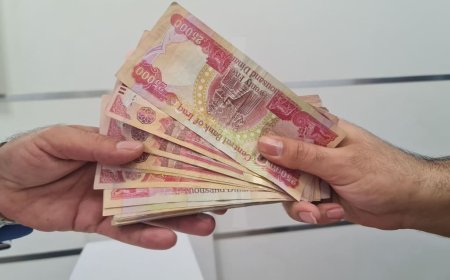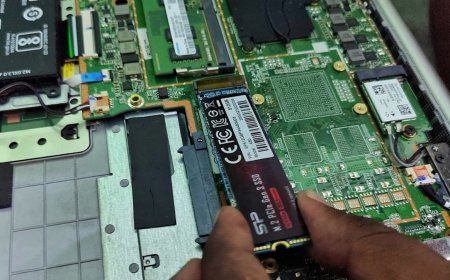The Role of Asphalt Road Contractors in Dubai’s Infrastructure Growth
Dubai, one of the fastest-growing metropolitan cities in the world, is globally recognized for its world-class infrastructure, iconic skyline, and progressive vision. The backbone of this rapid urban development lies in its robust infrastructure planning and execution especially in the fields of pipeline construction and asphalt road contracting. These two sectors are fundamental to supporting Dubais growth, ensuring sustainability, and enhancing the quality of life for its residents and visitors.
In this blog, we will explore the importance and intricacies of Pipeline Construction In Dubai as well as the critical contributions of asphalt road contractors in Dubai. From planning to execution, these industries form the hidden framework behind the city's remarkable development.
1. Pipeline Construction in Duba
1.1 Ensuring Efficient Water Supply and Sewage Management
Dubais desert climate makes water management an essential aspect of urban planning. The city has invested significantly in developing an advanced network of water pipelines that transport potable water, desalinated water, and treated wastewater. The construction of pipelines is not merely about laying pipes underground; it involves comprehensive planning, environmental considerations, and future-proofing the infrastructure. Pipeline systems also support irrigation for green landscapes, which are important for Dubai's aesthetics and environmental goals.
Moreover, sewage and drainage pipelines are critical for managing wastewater. These pipelines are built using corrosion-resistant materials and advanced technologies that monitor pressure, flow, and blockage. Trenchless methods, like horizontal directional drilling, are frequently used to reduce surface disruption in busy urban areas.
1.2 Oil and Gas Transportation
Dubai is strategically located as a logistics and energy hub in the Gulf. The construction of oil and gas pipelines is essential for transporting crude oil, refined products, and natural gas to ports and refineries. These pipelines are designed to meet stringent safety and quality standards and must withstand extreme temperatures and desert conditions.
Pipeline construction for the energy sector often includes remote monitoring systems, leak detection technologies, and automated control valves to ensure the safe and efficient operation of the entire network. Given Dubais commitment to reducing its carbon footprint, pipeline networks are also being adapted to transport sustainable fuels, including hydrogen and biofuels.
1.3 Integration with Smart City Initiatives
Dubais smart city vision relies on integrated infrastructure. Pipelines are now embedded with smart sensors and IoT-based technology for real-time monitoring. These smart pipelines detect pressure changes, leakage, or contamination, allowing for predictive maintenance and reducing the risk of major service disruptions. Digital twins and GIS mapping further aid pipeline construction and asset management.
Pipeline construction in Dubai reflects a balance between modernization, environmental sustainability, and operational efficiency. This sector will continue to evolve as Dubai shifts towards more sustainable infrastructure practices.
2. Asphalt Road Contractors in Dubai
2.1 Superior Road Network Development
Dubais reputation for having some of the best roads in the world is no coincidence. Behind this achievement are expert asphalt road contractors who meticulously design, construct, and maintain a vast network of highways, city roads, and interchanges. Roads in Dubai are built to withstand intense heat and high vehicular traffic, requiring specialized asphalt mixes that offer durability, flexibility, and skid resistance.
Contractors use high-quality bitumen, reinforced subgrade layers, and precision paving machinery to achieve world-class road conditions. In addition, many roads are designed with multi-layered construction starting from subgrade compaction, followed by a granular sub-base, and topped with modified asphalt concrete.
2.2 Advanced Technologies in Asphalt Paving
Dubai has adopted state-of-the-art technologies to ensure speed, quality, and environmental compliance in road construction. Warm mix asphalt (WMA) technology is gaining popularity due to its reduced greenhouse gas emissions and lower production temperatures. Laser-guided pavers and intelligent compaction equipment help contractors achieve high surface quality and uniform compaction, which are critical for long-lasting roads.
Another innovation is the use of recycled asphalt pavement (RAP), which is not only cost-effective but also aligns with Dubais vision of environmental responsibility. Asphalt road contractors are increasingly integrating these sustainable methods into mainstream road projects.
2.3 Maintenance and Safety Prioritization
Given the citys fast-paced development, road maintenance is just as critical as construction. Contractors must work under strict timelines, often carrying out repairs during non-peak hours to minimize traffic disruption. Preventive maintenance techniques such as crack sealing, surface sealing, and micro-surfacing are commonly used.
Contractors also focus on road safety elements, including signage, lane marking, road studs, and lighting. With Dubai striving for a zero-accident transport system, asphalt road contractors must align their practices with the highest safety standards and regulations.
3. Synergy Between Pipeline Construction and Asphalt Road Contracting
3.1 Coordinated Infrastructure Planning
One of the most critical aspects of urban development in Dubai is the coordination between pipeline constructors and asphalt road contractors. Since pipelines are often laid beneath roads, a collaborative approach is necessary to prevent repeated excavation and to ensure long-term durability. Integrated planning helps in cost reduction and minimizes disruption to the public.
Planners use Building Information Modeling (BIM) and Geographic Information Systems (GIS) to map out the placement of pipelines alongside road development projects. This synergy ensures efficient space utilization and supports Dubai's vision of becoming a smart, sustainable city.
3.2 Smart Infrastructure and IoT Integration
With the rise of smart cities, the integration of IoT in both pipelines and roads has become a standard practice. For example, temperature and pressure sensors in pipelines are complemented by traffic sensors on roads. These data points are often interconnected and monitored via centralized dashboards to aid decision-making.
Additionally, smart asphalt embedded with sensors can monitor surface temperature, detect structural damage, and even alert authorities in case of accidents or abnormal loads. This convergence of technologies ensures infrastructure resilience and a higher quality of public services.
3.3 Sustainability and Green Construction
Both sectors are evolving to adopt sustainable construction practices. In pipeline construction, non-invasive trenchless technologies and corrosion-resistant materials reduce environmental impact. Meanwhile, in asphalt road construction, low-emission machinery, eco-friendly binders, and recycled materials are paving the way forward.
Dubais commitment to the UAE Vision 2030 and the Sustainable Development Goals (SDGs) necessitates that all infrastructure projects, including pipelines and roads, meet environmental compliance standards. Green certifications, carbon audits, and lifecycle assessments are becoming the norm for contractors.
4. Future Outlook: Innovations and Challenges Ahead
4.1 Climate Adaptability
Dubai faces unique environmental challenges due to its desert location. Rising temperatures, shifting sands, and sudden rainfalls can stress both pipelines and roads. To counteract this, materials science is playing a major role in developing climate-resilient pipelines and asphalt mixes that can expand and contract without failure.
4.2 Urban Expansion and Mega Projects
As Dubai continues to grow with new urban areas, free zones, and industrial hubs, the demand for pipeline and road infrastructure will surge. Mega projects like new cities, waterfronts, and transit corridors will require seamless execution from both pipeline construction specialists and asphalt road contractors.
4.3 Regulatory and Technological Shifts
As new regulations emerge concerning emissions, labor safety, and AI-based construction tools, companies in both sectors must stay agile. Drones, AI-based predictive maintenance, and robotics are set to revolutionize the industry. Contractors must invest in training and digital tools to remain competitive.
Conclusion
Dubais transformation from a modest port town to a global urban marvel has been supported significantly by the strength of its infrastructure. At the heart of this transformation lie pipeline construction and Asphalt Road Contractors In Dubai two industries that quietly but powerfully enable urban life, economic activity, and technological advancement.
The future of infrastructure in Dubai will be defined by smart technologies, environmental responsibility, and cross-sector collaboration. Pipeline construction will become more intelligent and less intrusive, while asphalt roads will become safer, greener, and more adaptive. Together, these sectors will continue to shape the future of Dubai, one connection and one road at a time.


























